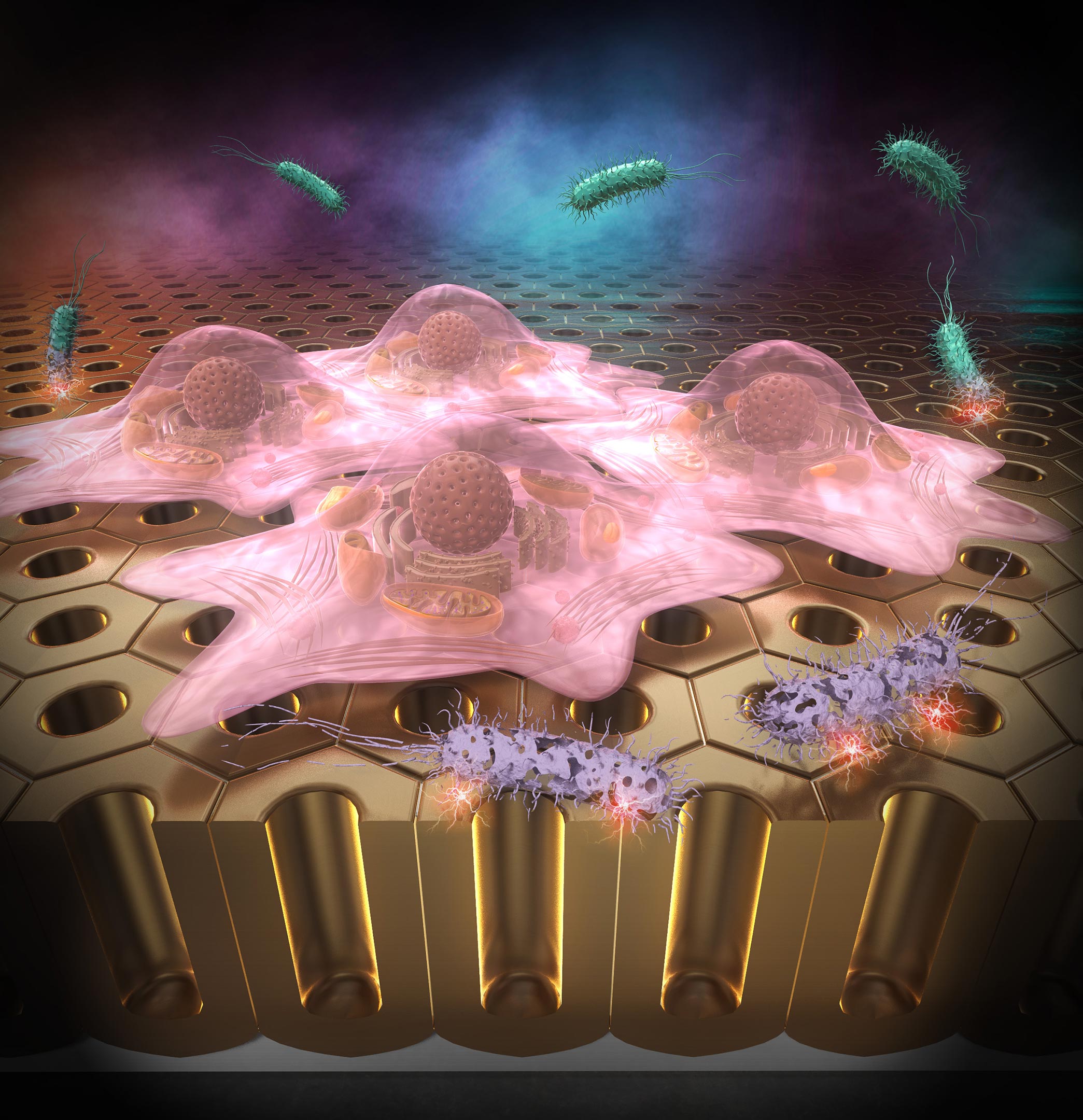Connect with us
Published
1 week agoon
By
admin
Researchers from Tokyo Metropolitan University have developed innovative nanostructured alumina surfaces that effectively combat bacterial growth while promoting the cultivation of cells, presenting a significant advancement for regenerative medicine. Utilizing electrochemical processes in concentrated sulfuric acid, their anodic porous alumina (APA) surfaces exhibit exceptional antibacterial properties, allowing for contamination-free cell cultures without the need for antibiotics. This technology addresses critical challenges in public health and lab environments, where traditional antibacterial methods often employ antibiotics and harsh chemicals, leading to environmental harm and the rise of antibiotic-resistant bacteria.
The breakthrough stems from existing knowledge of natural nanostructures, such as those on cicada and dragonfly wings, which inhibit bacterial proliferation by damaging bacterial cell membranes. The team, led by Professor Takashi Yanagishita, refined the production process of APA surfaces, which consist of needle-like pillars lethal to bacteria yet safe for biological cells. The ability to cultivate cells in a sterile environment without antibiotics could revolutionize regenerative medicine by reducing costs, enabling wider access to treatments, and enhancing the safety of scientific experiments. Their findings were published in the journal Langmuir, offering a promising path forward in bacterial contamination control and cell culture methodologies.


















